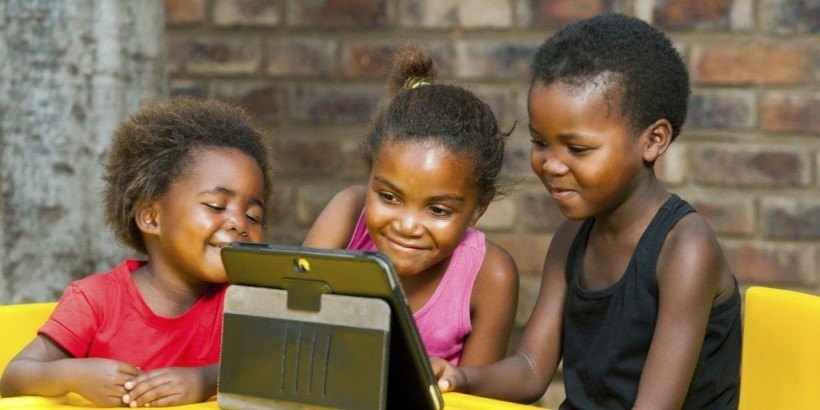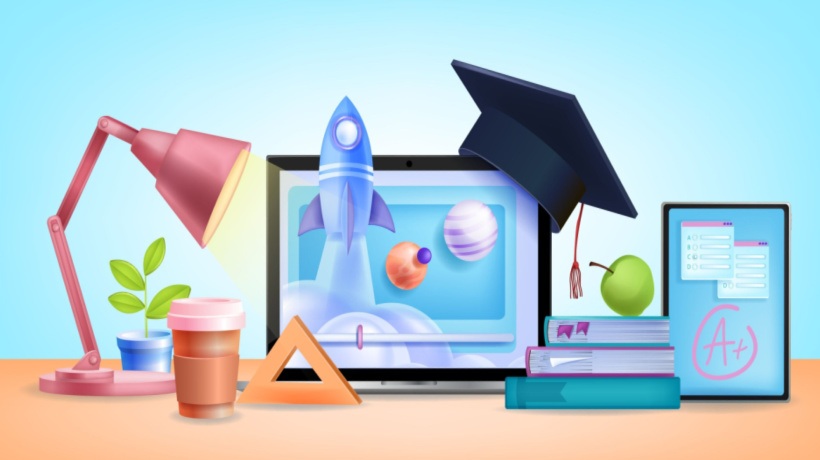Why The Gamification Of The Education System In Africa Is Of Vital Importance
Gamification [1] is the use of game-elements (context, avatar, mystery, reward, competition) and game-thinking in non-game environments to motivate and engage learners. Games are an effective and efficient instructional strategy for teaching and learning as they involve competition and are organized by rules and restrictions to achieve a certain educational goal. Competition stimulates the will to win and helps students to stay focused on the learning activity. Video games are a fun and safe environment, where students can try alternatives and see the consequences, learning from their own mistakes and practical experiences (interaction).
Serious games have proven to be equally or even more effective than traditional ways of learning. The neuroscience behind this isn’t hard to understand. Each time you reach a new achievement level, you feel a little excitement and pleasure. Your brain gets the message that what you just did to accomplish something is worth pursuing. Gamification of learning can create lots of positive associations with learning and even training as learners are rewarded with each achievement. And this learning and teaching approach is even considered as the future of education and many educators/teachers are progressively gamifying their classes and practices.
But in Africa, this tendency is low, and we believe that there are 2 factors that can explain the need for Africa to adopt and integrate this innovative instructional methodology. These 2 factors are:
1. Africa Is The Continent With The Youngest Population In The World
The world’s 10 youngest populations are all in Africa, as seen in the chart based on United Nations data shown here.
As we have noticed, they are all under 20, and Marc Prensky defined this younger generation as the "digital natives". Many are "native speakers" of the digital language of computers, video games, and the internet [1]. According to Prensky, one of the more radical consequences of this technology-rich environment is a hypothesized change in the brain structure that means young people think, use and process information [2] in different ways compared to older generations, the digital immigrants. He explains, "digital natives are used to receiving information really fast. They like to parallel process and multi-task. They prefer their graphics before their text rather than the opposite. They prefer random access (like hypertext). They function best when networked. They thrive on instant gratification and frequent rewards. They prefer games to 'serious' work [3]".
The world in which digital natives have grown up is typically rich with technology, information, and digital media, and they have been exposed to IT from a very young age. They stay connected by using SMS, mobile phones, and emails while they simultaneously play computer or mobile games [4]. Therefore, to young Africans, gamified learning interventions offer a bigger impact than traditional learning scenarios [5].
But gamification applies to more than just digital natives.
Lots of people enjoy gamification, even if they don’t think of themselves as gamers. Many people have unknowingly experienced it. For instance, we belong to different rewards programs, shop or flight loyalty card, phone notification, job promotion… These are gamification examples in real-life situations. For African educators to meet the needs and expectations of new generations of African students, consideration of their skills and learning styles will be necessary [6]. Their learning styles are characterized by social constructivist and experiential learning. Therefore, designing and using video games and gamification is surely one of the best pedagogical approaches for them.
2. Africa Is The Second Largest Continent Using Mobile Technologies In The World
The past decade has seen rapid shifts in access to technology. The Ericson Mobility Report predicts that 70% of the world’s population will be using smartphones by 2020. Their Global Mobility Report suggests that there is an 85% mobile subscription rate in Sub-Saharan Africa but this figure is expected to reach 100% by 2021 and 105% by 2022, with over 1 billion mobile subscriptions. We currently have a flourishing mobile ecosystem that, coupled with the declining cost of smartphones is helping to galvanize the African mobile economy. Smartphones as low as $20 are now available in areas where even toilets are a luxury. This boom opens a window of opportunity to reach the poor through their phone, using simple mobile serious games (MSG).
Based on these considerations, mobile learning through MSG is surely one of the best instructional approaches for the rising generation of African Youth. African video-game developers should use smartphones as an instrument to further improve learning efficiency. Through them, the development of skills will be easier and more affordable than ever before in Africa. There are a good number of individuals and companies that have taken the world by the horns and are showing them just what Africa is capable of in terms of serious gaming.
Maliyo’s mobile game, Mosquito Smasher, isn’t just a satisfying time-killer but also key into a serious health problem.
It "aimed at raising awareness of malaria, and sensitizing people about the need to cultivate good hygiene habits" [7] says Obi, co-founder of Maliyo Games.
With a different scenario, Mosquito Hood, designed by Momentum Core, educates Africans living in rural areas about the risks and ways to protect themselves against malaria. Ugandan game developer Daniel Okalany, co-founder of Kola Studios, created ZWord, a game that uses the zombie destruction method and combines the properties of educational games with popular culture to teach spelling. The South African gaming studio, Afroes, focuses on educational games that can bring social change. One of these games, called Moraba, aims to empower youth audiences to prevent and act on Gender-Based Violence (GBV).
Ghana’s Leti Arts game Hello Nurse, developed with the country’s ministry of health and JHPIEGO, is a mobile serious game designed to help trainee medical staff (midwives and nurses) diagnose and treat malaria.
An impact evaluation study [8] conducted on Hello Nurse demonstrated its effectiveness in the acquisition of good behavior on malaria’s treatment at the Midwifery training college of Teshie. My Jorley [9], another Leti Arts’ game, deal with sexual health in adolescents and young adults aged 12-21.
Ghana At Heart has also developed Ananse The Teacher, an all-inclusive practical science, technology, engineering, arts, and mathematics (S.T.E.A.M) app, running on Android phones and web platforms. This gamified learning app makes reading and learning STEAM fun. It allows children to easily relate to the lessons they are taught in school, as they are guided to conduct practical activities with items they see around them every day!
Conclusion
Students can learn quickly and absorb new information and skills that can change their lives if they get access to exciting learning experiences. The gamification of learning increases their engagement with a wide variety of learning styles [10]. As the market for game-based learning tools spreads, African video game developers should also tap into this industry by working hand to hand with educators to design more educational games adapted for African students. If sub-Saharan Africans can use this to their own advantage and be provided adequate education and jobs, $500 billion could be added to the country's economy for 30 years [11].
References:
- Marc Prensky, ‘Digital Natives, Digital Immigrants Part 1’, On the Horizon 9, no. 5 (2001): 1–6.
- Sue Bennett, Karl Maton, and Lisa Kervin, ‘The “Digital Natives” Debate: A Critical Review of the Evidence’, British Journal of Educational Technology 39, no. 5 (2008): 775–786.
- Prensky, ‘Digital Natives, Digital Immigrants Part 1’, 1.
- Jason L. Frand, ‘The INFORMATION-AGE Mindset.’, Educause Review 35, no. 5 (2000): 18.
- Kara Mangold, ‘Educating a New Generation: Teaching Baby Boomer Faculty about Millennial Students’, Nurse Educator 32, no. 1 (2007): 21–23.
- The Gamification of Education
- Meet the New Gaming Talent Rising up from Ghana to Cameroon
- Cédric Christian Ngnaousi Elongué, ‘Design and Evaluation of Serious Game for health training in Ghana’ (Lilles University of Science and Technology, 2018).
- “Jorley” is a Ga word translating roughly as ‘sweetheart’.
- Alice Y. Kolb and David A. Kolb, ‘Learning Styles and Learning Spaces: Enhancing Experiential Learning in Higher Education’, Academy of Management Learning & Education 4, no. 2 (2005): 13.
- The World’s 10 Youngest Populations Are All in Africa’, World Economic Forum









